Uber stoking support in Birmingham with new in-app “future view”
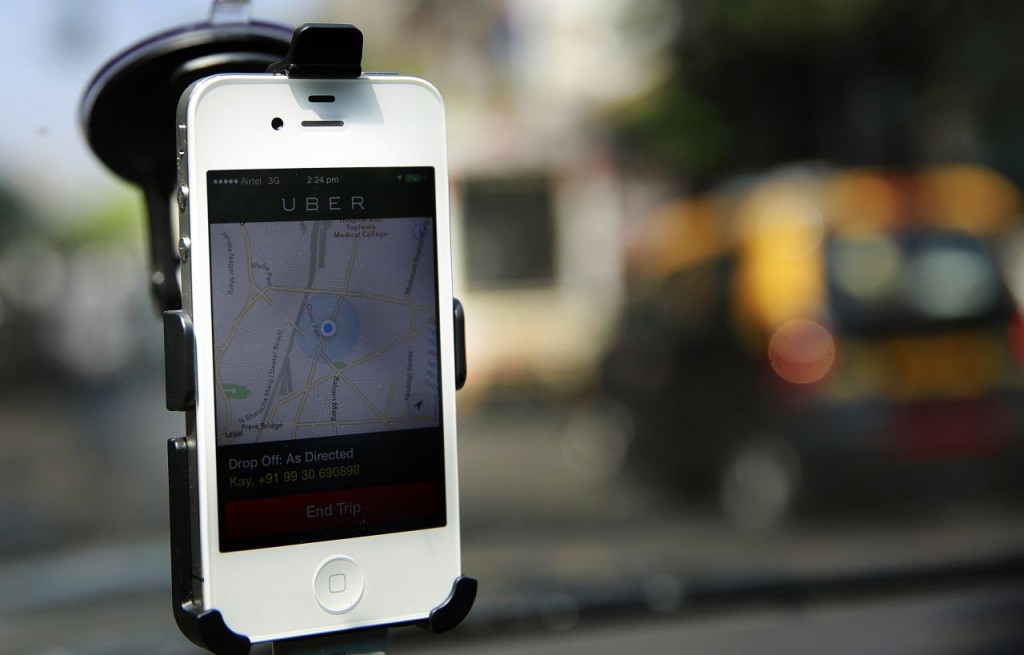
The ride-hailing app Uber has gotten creative in its months-long push to open up shop in Birmingham. Starting Friday, when you open up the app in the Magic City, instead of a car-less road map symbolizing the lack of progress in the City Council users will see a view of the future as supporters see it, in which Ubers are zipping up and down Second Avenue North. You’ll also get a little background on the firm’s regulatory battle with city officials and an option to help out the cause. “Make Uber a reality in B’ham!” a new dialogue in the app implores Birmingham. “This is how easy getting a safe ride could be if City Council pass draft regulations proposed at the meeting on Nov. 17 Committee of the Whole meeting. “Email City Council, urge them to PASS these smart ridesharing regulations this Tuesday,” reads the appeal, along with an option email your councilor. Earlier City Council meetings scheduled to take up the pro-ridesharing rules didn’t exactly live up to expectations. Five councilors failed to show up for a meeting in November, where Uber’s favored ordinance was on the docket. Council President Johnathan Austin, Councilman Steven Hoyt, Councilwoman Sheila Tyson, Councilwoman Lashunda Scales and Councilman Marcus Lundy did not attend the meeting, requiring members to adjourn for lack of a quorum. “There was no quorum. There was no consideration. There was no class,” said one AL.com editorial. “It’s all about petty politics, about fights over contractors and lobbyists.” Austin ascribed the absences to the meeting’s close proximity to the Thanksgiving holiday. Either way, Uber state General Manager Tom Maguire said Friday he is hopeful Tuesday’s meeting will be more productive. “Since August, Birmingham City Council has been working to revise regulations so that Uber can operate in the Magic City, and there’s no reason to delay any further,” said Maguire. “With this app view, Birmingham residents and visitors can see for themselves how easy it could be to get a ride in Birmingham, and what reality could look like in just a few weeks if the City Council passes the draft regulations from the November 17 Committee of the Whole meeting,” Maguire said. See below for screenshots of the new appeal:
Birmingham Council postpones Uber vote as 5 councilors no-show
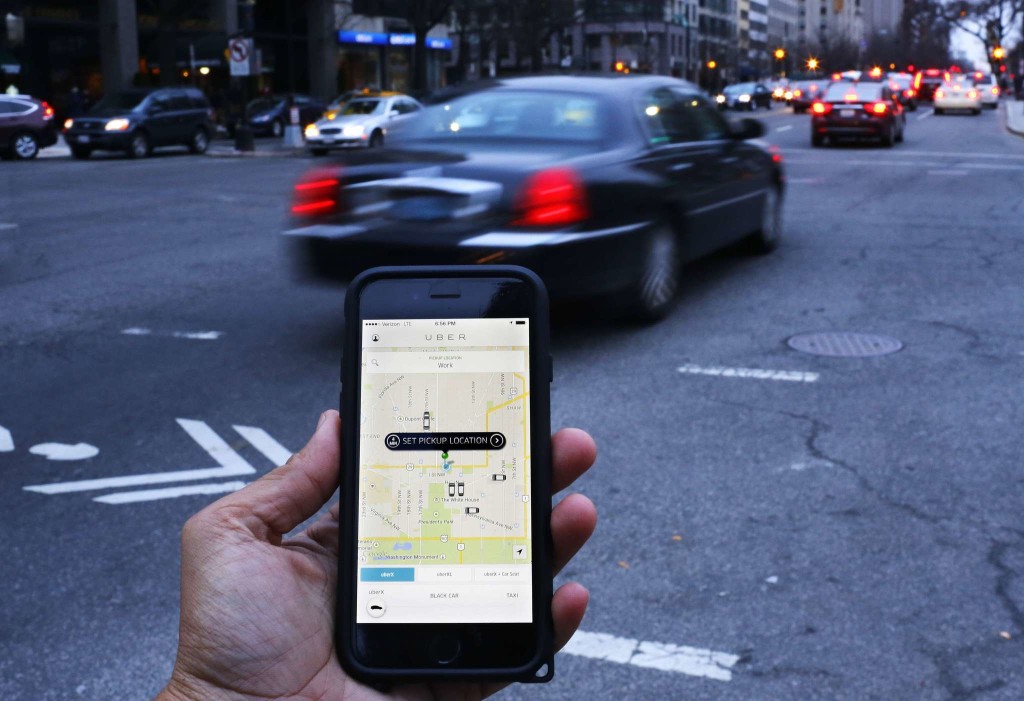
A scheduled vote on whether to approve new rules allowing ride-hailing services like Uber and Lyft to operate in the Magic City was postponed Tuesday afternoon for lack of a quorum required to vote. Council President Johnathan Austin, Councilman Steven Hoyt, Councilwoman Sheila Tyson, Councilwoman Lashunda Scales and Councilman Marcus Lundy did not attend the meeting, requiring members to adjourn before hearing the ride-hailing item on the agenda. The Birmingham City Council was slated to take up an ordinance that would allow so-called ridesharing firms to set up shop in the city by next month, along with other issues. Council members Jay Roberson, Valerie Abbott, Kim Rafferty and William Parker were in attendance. They waited about an hour before telling an increasingly restive audience the meeting would have to be scuttled. The delay may push back the beginning of Uber’s operations in Birmingham until 2016. “It’s disappointing that Birmingham residents have to continue waiting for safe rides and economic opportunity,” said Uber spokesperson Kaitlin Durkosh Tuesday. “We look forward to the draft ridesharing regulations from last week’s Committee of the Whole meeting crossing the finish line next Tuesday, so that we can bring ridesharing to Birmingham in advance of the New Year,” said Durkosh. Some Birmingham residents took to the “Magic City Movement” Facebook page established to support Uber’s efforts to voice their displeasure with the councilors’ actions. “Collusion,” is what user Sam Lewis chalked it up to. “Everyone in the BCC ignoring the people’s voice on this extremely important matter deserve to be reprimanded by not receiving your vote during the next election.” Another group member, Kris Reeves, opined: “These people, who were put in charge to lead our great city, are holding us back. I constantly defend Birmingham, but things like this make it extremely difficult. They are keeping us the laughingstock of major US cities.” Planned votes on several road improvement projects and re-upping the contracts of city consultants also were casualties of the no-show. Council President Austin said the members missed the vote because “most people are out of town visiting family for Thanksgiving.”
Uber in Birmingham does not mean rehashing old regulations, supporters say
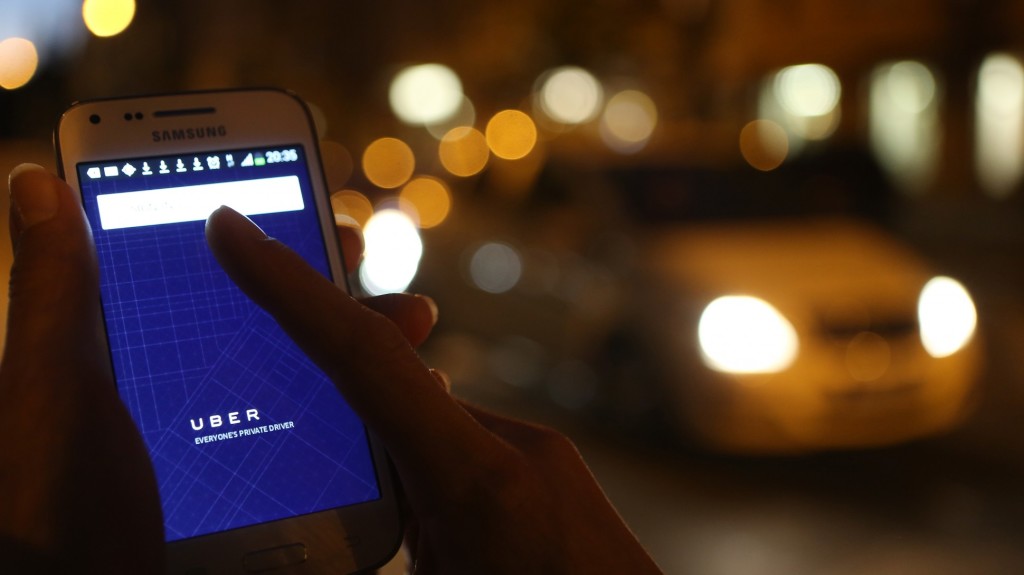
Birmingham insists they want Uber, but the road is not yet fully clear for the popular ridesharing service. Despite assurances from the Birmingham City Council that Uber is welcome, demonstrated in the city’s latest video update, requirements the company must first meet all “safety regulations” could become a roadblock to Uber’s expansion in Birmingham. As outlined in a document to the city’s legal department, obtained by ALToday.com, Uber’s primary concerns include outdated insurance requirements, redundant background checks and excessive licensing and permitting in jurisdictions that regulate “Transportation Network Companies.” After last week’s Committee of the Whole meeting, Birmingham’s proposed regulations – required as a condition of operations in the city – are what Uber officials call a simple rehash of existing transportation codes passed in 2014. Those regulations continue to lump Uber in the same category as traditional taxi services. “The regulatory proposals we’ve seen thus far from City Officials neither reflect the ridesharing business model nor appear to be a serious attempt to bring this option to Birmingham,” an Uber representative told Alabama Today. “We’ve shared our position on three issues that we must come to an agreement on before we’re able to offer ridesharing in the Magic City.” At issue are several sections in latest draft, which reference the 2014 codes. For example, as noted on the second page of the draft, “Vehicles operating under the auspices of a Transportation Network Company will be treated as taxicabs for the purpose of determining all licenses and fees required under this Code.” That passage is directly at odds with Uber’s three central priorities, which they say must be addressed before the company (as well as rival Lyft) can provide convenient and affordable transportation to Birmingham residents. Coincidentally, the same three issues – licensing, background checks and insurance – are top concerns laid out by City Council President Jonathan Austin this summer. For other municipalities that passed pro-ridesharing regulations, including Mobile, allows a TNC to apply for a “master license” from the city. This permits drivers to be registered with Uber, not individually and separately with the city. Such rules supports Uber driver/partners, who see flexibility in hours as the most appealing feature of a ridesharing career. According to estimates, 50 percent of all Uber drivers in the United States average less than 10 hours per week on the road. Eighty-seven percent say that “being their own boss” is a significant factor in their decision to work with Uber. Requiring individual licensing would, in effect, have a chilling effect on attracting quality drivers. As for insurance, since most Uber drivers use their vehicles for personal business and not ridesharing, a majority of vehicle use is already covered under the drivers existing personal auto policy. Uber offers a contingent insurance policy – exceeding the state’s personal insurance minimum requirements – which protects drivers while they are active in the system, but not yet picked up a rider. Another obstacle preventing Uber’s full participation in the city of Birmingham is a proposed requirement for background checks, which supporters say is an unnecessary duplication of effort. All driver/partners seeking to be included in the Uber platform are already required to undergo an extensive background checks performed for the company by an accredited third party. Uber screens include Social Security tracing, a seven-year history of addresses associated with the potential driver’s name, and a criminal background check through national, state and local databases. Vendors crosscheck all driver-partners against the National Sex Offender Registry as well as public registries maintained at the state level, to screen for disqualifying offenses. Also, background checks include pulling the applicant’s Motor Vehicle Registration file. Uber and other ride sharing services believe unnecessary layers of city-sponsored bureaucracy only further hinders participation, shrinking the available pool of qualified drivers. Accepting Uber into Birmingham, the spokesperson says, requires more than a rehash of outdated existing regulations. “We hope that Birmingham follows in the footsteps of more than 60 U.S. jurisdictions that have passed pro-innovation ridesharing regulations, and supported the subsequent economic opportunity and safe transportation options that their residents deserve.”
Movement to bring Uber to Birmingham building momentum fast
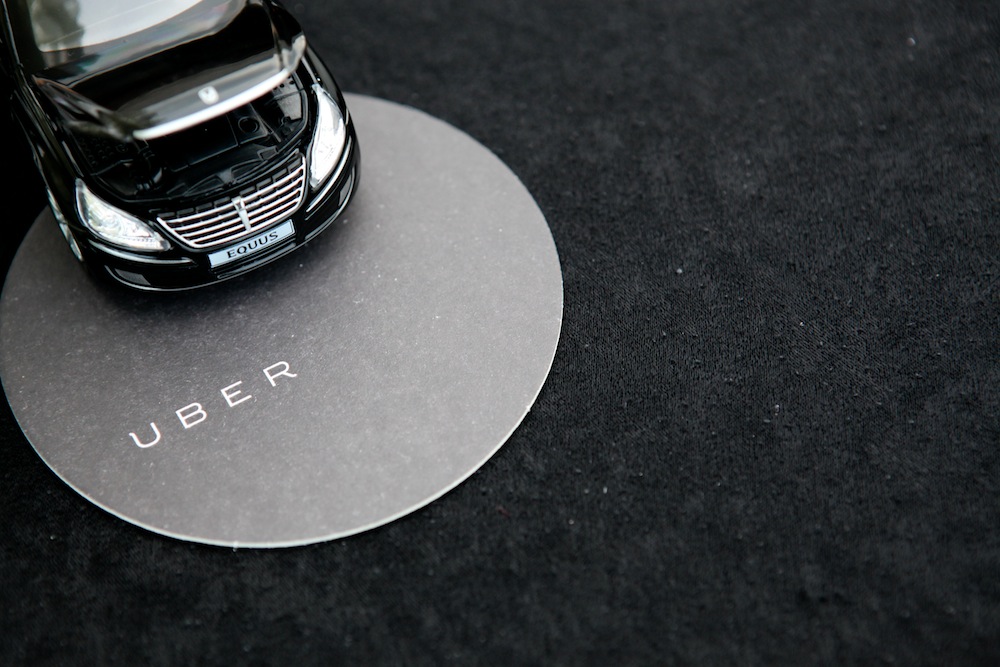
A weeks-long organized effort to bring ride-hailing services like Uber and Lyft to Birmingham seems poised to cross the goal line in the near future. An outpouring of public support both from citizens – including via “Draft Uber”-style drive on social media – had been reciprocated by elected officials. City Council President Johnathan Austin declared yesterday that the city “definitely wants” Uber in town. Mayor William Bell has also signified his support, and has agreed to an expedited process that will accelerate the drafting and passage of a pro-ridesharing city ordinance. A spokesperson for Uber confirmed the progress on Thursday. “Based on today’s conversation, we’re optimistic that City Council is on a path towards bringing ridesharing to Birmingham,” a spokeswoman told Alabama Today. “We thank Council President Austin for his leadership, and look forward to working with City Council on an ordinance that aligns with the nearly 50 US jurisdictions with pro-innovation, pro-consumer ridesharing regulations.” Negotiation with the Magic City’s municipal government occurred last summer as well, but the two sides could not come to an agreement so talks fizzled. Talks broke down along lines familiar to those who have watched the ridehailing vs. taxis political/regulatory food fight that has occurred across the country – background checks, insurance requirements and taxes. Uber recently staged a unilateral pullout in South Florida’s Broward County after commissioners there attempted to fold ridesharing services – with some minor tweaks – into regulatory scaffolding that governs taxi cabs there. Representatives from Uber said that was not fair, because their business model is entirely different. Back in July local businessman Bill Smith – CEO of grocery delivery service Shipt – started a GoFundMe page to raise money for pro-Uber advocacy efforts. The drive surpassed its $10,000 goal easily. Council President Austin said Wednesday he hopes to have the new rules allowing for Uber and similar services to operate in Birmingham within one month from yesterday’s meeting of the city Transportation Committee.
Quick look: 5 hot topics state and national from budget to Baltimore
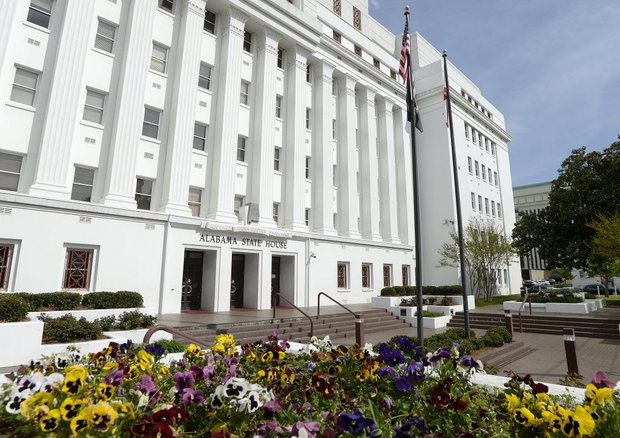
Short thoughts on current hot topics: State: Statehouse: This week is sure to be … colorful. From tax increases on the calendar to the gaming prospects being kicked around there’s a lot to debate, I’m sure everyone has a strong opinion about what we should or shouldn’t do to get through this Session and budget crisis but let’s hope we can fare better than our neighbors in Florida and get through it without a total meltdown . I don’t envy lawmakers who will be hearing from all sides that the solutions being offered are all bad and unworkable. Our elected officials aren’t sent to Montgomery to designate a state bee or cake or other such trivial matters (yes, I saw the Queen Bee designation is back on the calendar this week), they’re sent there to make tough decisions like the ones we’re seeing now. Here’s hoping they weigh their options and take the one that makes the most sense for the long-term health of the state and its budget. Poarch Creek vs. Free-Market: The Poarch Band of Creek Indians offered to give the state $250 million toward the deficit to not expand gaming to anyone but them. Rarely am I left speechless at a political proposal, but this one just strikes me as so unconventional I can’t write about it without using terms like anti-free market or bribe, or without pointing out the cliched, but appropriate, objection to the government picking winners and losers. The offer was countered by a proposal for four new casinos lacks the same long-term revenue projections or the job creation and is frankly just as far from free-market as one can get. Can anyone not personally benefiting actually believe this is a good idea? We’ll soon see. Uber and other ridesharing: I could get another cup of coffee and pontificate all day on all the reasons we need a state bill in support of ride sharing, because we do. Instead, I urge you to read our guest op-ed by radio host Will Lochamy on the subject. Need an incentive to click through? There’s a photo of a sleeping member you won’t want to miss included in the post. National: On the shooting in Texas: There was an attack in Texas last night that was much more than it seems it wasn’t just an attack at an art show it was an attack on the First Amendment. Every mainstream media report that emphasized the theme of the event in Texas as anti-Muslem attack got it wrong. The violence shown in Texas was anti-free speech and in our country free speech, however controversial, is protected. The best part of the U.S. Constitution is that it guarantees certain freedoms and secures essential rights regardless of public opinion. So long as using your rights doesn’t deprive others of theirs, I can hate and despise your words and/or actions but I will defend your ability to exercise them. You can expect this event to stir up a lot of discussion but let’s hope the underlying issue doesn’t get lost in the debate. On Baltimore: The lines of people standing in front of law enforcement, protecting them was as powerful as any image I witnessed during the recent riots as were the many photos of those cleaning up or simply peacefully protesting. It gave me hope for Baltimore which is now starting to see quiet as curfews have been lifted and the worst appears to be over in terms of the riots and violence. It doesn’t take much to see that we are at a crossroads in our nation, continue to handle racial tensions crisis-by-crisis or confront the underlying animosity and distrust that continues to spill in the streets of our most vulnerable communities between the protests and tragedy. That is the only way we stop and prevent it. We must seize the time now when the streets are not burning to identify where they could be next and calm the fear, address the imbalance of justice and prevent violent protests. Community leaders regardless of race, religion, political affiliation or the other labels that separate us need reach across the lines that divide to peacefully lead conversations. I’ve heard a lot of talk about these conversations lately but they need to happen not only on the editorial pages and on network television but in local churches and community centers in the places that matter. Photo Credit: Jim Watson, AFP Getty Images
Will Lochamy: My Uber App won’t work. Can I get a Lyft, Alabama?

We have a transportation problem, right? I think we can all agree on that. Good news … there is a solution. In fact, Rep. Jack Williams has proposed House Bill 509 to solve it. I went to Montgomery to support it. Here are some thoughts; The Birmingham (metro) area is blossoming in ways that were unimaginable just a few years ago. It makes me proud. From what I’ve read, it makes you proud too. We should be proud. Regions Field, award-winning restaurants and breweries, The Civil Rights Museum, Railroad Park, Yellowhammer Creative, Birmingham Mountain Radio, and our newly found sense of community are just some of the very legitimate reasons for us all to be proud. We are not the only ones taking notice. National articles are popping up all the time that name us, formerly known as “Bombingham,” as one of the “best” in many different categories. There’s no denying that we are now a proud, progressive, educated, and scene-influencing town. So why do we continue to be the “last” in so many things? I might have found out when I went to our Statehouse this week. At one time (somewhat recently), I was the GM of the largest pub in Birmingham. It was my responsibility, along with every single employee, to make sure customers were not over served or ever behind the wheel intoxicated. It’s all spelled out in the Dram Shop Act (feel free to read about it here: Dram Shop Act). This was and always will be a nearly impossible task. Believe me, we tried hard. We took all of the obvious precautions, but in the end, it came down to making sure people didn’t drive. We placed Yellow Cab’s number all over the walls and called the number for them, time after time. Too many times, they wouldn’t wait or the cab just simply wouldn’t show. If we were lucky, we could persuade them to wait and take them home in our personal vehicles. It was a major inconvenience, but far better than the alternative. Now out of that industry, my new job has me traveling. While working in San Francisco a couple of years ago, a fellow employee advised me to download the Uber app. Out of the gate, I was blown away. This was Uber Black I was using. It’s the fancy Uber service that you often hear about as being top notch. It is. An SUV, town car, or limo generally shows up depending on your group size and/or preference. As I began working in Charlotte, I started using Uber X. This is the “boogie man under the bed” service they offer. The one where drivers use their own vehicle. That last sentence leads to misconceptions. A lot of them. People take this to mean any average Joe can open an app, jump in their car, and find people who need rides. This is far from the truth. Uber is the boss, the driver is the employee. They use their own vehicle, while insured by Uber and only after passing a background check. Every Uber ride I’ve been on has been prompt and courteous, the driver has had a clean vehicle, and I’ve felt safe each time. If any of these things fall short, I can give the driver a negative rating on the app. If I happen to be a jerk (which I’m not), the driver can give me a negative rating. Too many negative ratings for them, they’re no longer a driver. Too many for me, they won’t pick me up. I like that. I like accountability. So why don’t we have Uber? The public screams for it. Every other state in the South has it. There are more than a million Uber rides per day, but we can’t get one in our great state? M.A.D.D. has come out in support and the stats clearly show that DUI deaths drop in states that have ride sharing, but it’s not for us? Why in the world would we oppose what consumers rave about? The opposition (Yellow Cab and head of the Birmingham Transportation and Communications Committee, Kim Rafferty) cries fowl on multiple points. Let’s quickly break down a couple. Point 1. Safety. The word “rape” was thrown around more times than I can count while the state house debated HB 509. “Uber drivers are raping women,” was the narrative. The honorable state Rep. Louise Alexander (District 56) repeated that she “didn’t want to be raped by a Google driver.” Rebuttal 1. This argument is bunk. (So is the fact that someone that doesn’t know the difference in “Uber” and “Google” is running our state.) The stories of Uber Drivers being arrested for assault or rape are unacceptable. There is no excuse for this. At the same time, we need to look at the numbers. In 2014, as Uber was just blossoming, there were more than 140 million Uber rides. The reports of arrests are just a handful. With a quick Google search, you can find page after page of Yellow Cab drivers arrested for rape, assault, and even murder. This isn’t Yellow Cab’s or Uber’s fault. It’s a societal issue. You can just as easily find staggering numbers of arrests for teachers, Sunday school teachers, and government employees. This argument is flawed and can’t be held against Uber. Rebuttal 1b. This argument is really bunk. Think of the lives lost to drunken driving. Think of the lives that could be saved be people having multiple, reliable options for rides. This is the biggest point of this debate. Period. Point 2. This should be decided by municipalities. The one municipality in question is Birmingham. Its transportation regulations are proposed by Kim Rafferty. The issue here is that LW Associates LLC is the consulting firm for Kim Rafferty. The owner of LW Associates, Lou Willie IV, is the son of Lou Willie III who represents several cab companies. Look away folks … there’s nothing to see here.* Rebuttal 2. This is too big for
Uber, Lyft ridesharing in Alabama gets mixed reaction from lawmakers

Lawmakers can’t agree whether bringing an app-based ride-hailing service like Uber or Lyft to Alabama is a good thing. Just this week, House lawmakers declined to vote on legislation by Rep. Jack Williams that would have forced the companies to operate under greater state supervision. Legislators’ responses to the bill were mixed, according to reporters at the hearing, ranging from concerns over sexual assaults of passengers to the low proposed registration fee. That may not be surprising, since the public is reporting mixed views on ridesharing. Uber and Lyft are mobile-app based ridesharing networks. In a nutshell, they provide passengers who need a ride with a driver able to provide it. Passengers can use a smartphone to schedule a ride alone or to arrange to share with several strangers headed the same way. Riders in major cities worldwide are already using the service. Though both companies are privately-owned and not required to issue financial projections, Uber is projected to earn upward of $10B in 2015; Lyft is expected to generate $1B in revenue. Uber has already made several attempts to break into Alabama markets: Tuscaloosa, Huntsville, Birmingham and Auburn. Last year, Uber launched a social media campaign to rally supporters in Birmingham to the idea and block the city’s attempt to add regulations to their model. Hundreds of tweets using the hashtag #BirminghamNeedsUber showed overall support from would-be passengers. Birmingham resident Amanda Watkins tweeted “Friends in Alabama: If you want to have a good time in Birmingham and a safe ride home, then support @Uber! #BirminghamNeedsUber” In Wednesday’s hearing, Hoover City Council member John Lyda reportedly said that he was in favor of bring the model to the state, saying it would bring “choice and competition” to his residents. Former driver Harry Poole said, “When I was in Auburn, everybody loved Uber,” and that parents would often tell students to call Uber rather than a traditional taxi service. But some have voiced concern over Uber’s tiered approach to service. In an interview, Birmingham City Council president Johnathan Austin said that cheaper UberX version was problematic because of lower driver requirements and training: “We want Uber but With UberX you just don’t know because it’s a different model. So you could have a driver who might not have been trained, you could have a driver who does not know the city.” The company maintains that its insurance and training requirements help to ensure passenger safety. “All uberX rides are insured up to $1M per incident–twice what is required of taxicabs in Birmingham,” Uber officials said in that same story. “Drivers must pass rigorous background checks at the county, state and federal level before they are ever allowed access to the technology.” Despite the company’s assurances, there have been several reports alleging driver misconduct in Alabama and nationwide. The company’s launch in Tuscaloosa quickly devolved into a fight with city officials over ordinances that govern taxi services. Soon after that, an Uber driver was caught in an undercover sting and charged with ordinance violations along with several drug and alcohol offences. Uber and Lyft have also been the subject of lawsuits by passengers, with allegations including negligent driving, assault, and sexual assault. In fact, Birmingham City Councilor Kim Rafferty cited concerns over passenger safety in a leaked email exchange with Mayor Walt Maddox. In her email, Rafferty suggested the formation of an ad-hoc committee to work with ridesharing companies in and out of the state on a model that meets regulatory and safety concerns. “Change in the on-demand for hire transportation industry is coming,” she said. “We need to be not just prepared but proactive.” No vote from lawmakers on Wednesday could mean that – for good or ill – change is unlikely to come to Alabama in this legislative session. In the interim, Uber has taken another approach to attracting local fans. The Uber in Alabama Twitter accounted tweeted on Friday, “Though regulations prevent us from connecting you with rides in #Birmingham, we can still connect you with giving” with a link to have an Uber driver pick up donations and drop them off at a Goodwill center in Birmingham.


